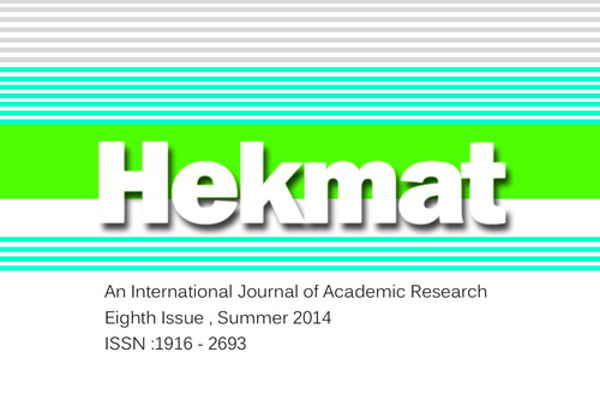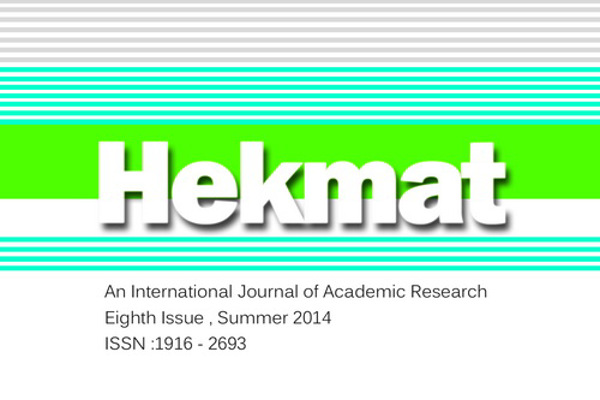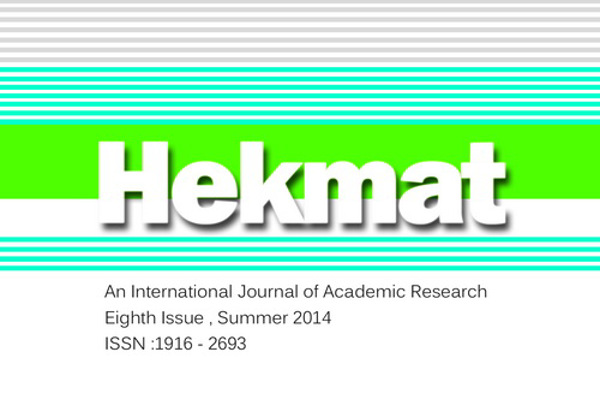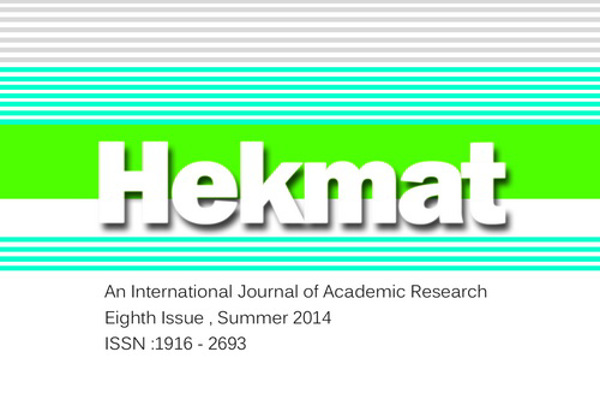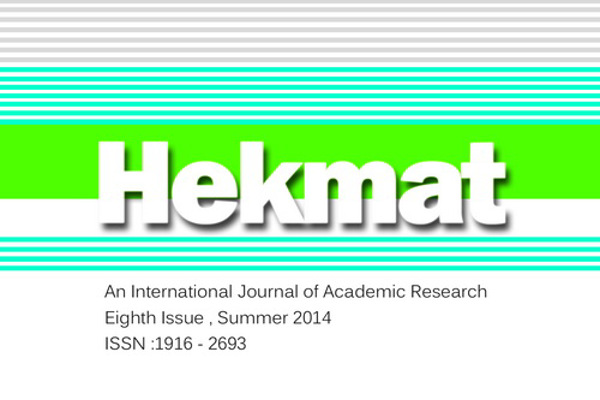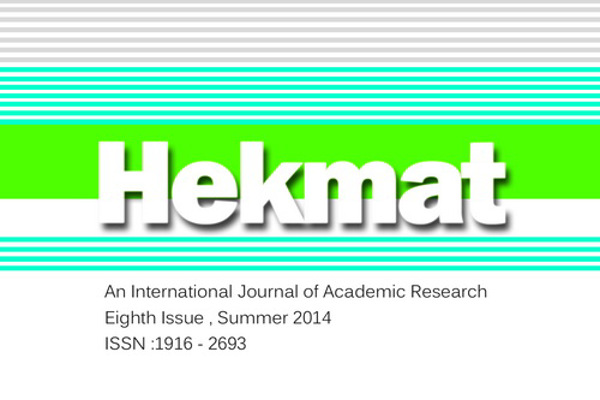Religious Coexistence / By: Mohammad Ali Khaledian PHD
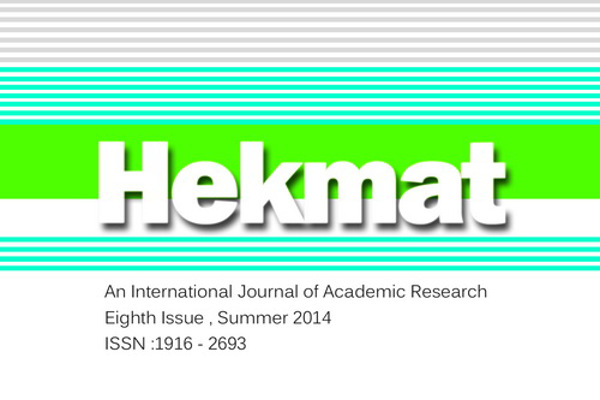
Key Terms: religious coexistence, religion, faith, peace, rationality, justice, impartiality, dialogue, knowledge
Religious coexistence is a genuine Islamic notion emphasized in the holy Koran in different forms and wordings. Fourteen centuries ago, the holy Prophet of Islam introduced this notion to a society that had no idea about it whatsoever. He not only presented the notion in His sermons but also implemented it in practice. The call to religious coexistence is as old as the call to Islam. Islam rejected the phenomenon of religious war known to man throughout the history of religion such as the Crusades. Hostility towards the followers of other faiths is condemned by Islam. Muslims are not allowed religiously to insult the followers of other religions. Three approaches can be seen in Islamic culture to the question of treating non-Muslims aiming at the establishment of harmony and peace among believers in different religions. One set of the Koranic verses state that conversion cannot be compulsory. The Koran says, “There can be no coercion in admitting a faith; verily, the path of wisdom is distinguished from that of bewilderment. (Sura Baqarah, verse 133); a second set of Koranic verses invite to treating non-Muslims fairly, affectionately, and kindly. These verses prescribe how Muslims ought to live with non-Muslims. They forbid displaying animosity to believers in other religions and enjoin goodhearted approach to them. “Verily, God does not forbid that you behave fairly and do good to those people who have not fought with you because of your faith and did not force you to exile; verily, God loves the just. It is only those people who fought against you because of religion and forced you to leave your home or cooperated with those who did so that God forbids your making friends with and who so ever does so will be unjust. (Sura Mumtahanah, verses 8 & 9); a third group of the Koranic verses invite to coexistence with followers of other faiths. Some of these verses describe how Muslims ought to discuss matters of faith and debate with “the people of the book”, i.e., Jews, Christians, and Zoroastrians. According to these verses, any discussion of this kind must be based on logic and reason aiming at the unveiling of the truth alone. Anybody embarking on such debates must pursue the truth and try to convince his audience using the best and ethical methods. There must be no prejudice, no violence, and no dogmatism in such debates. The Koran warns, “You must not argue with the people of the book except in a manner that is the best” (Sura Ankabut, Verse 46).
Should a call be stained with coercion or terror and far from reason and logic, it brings about nothing but disharmony and segregation. For this reason, Islam has prohibited such methods. The personal life of the holy Prophet witnesses to the fact that human encounter and pacific behavior can succeed. The treaty signed between the holy Prophet and the Christian inhabitants of Najran region guaranteed their freedom of religious practice in these terms: “No priest or father will be forced to leave their sanctuary, nothing will be forced on them, no one will be insulted, their land will not be occupied by our army, whoever demands justice shall be treated so.” It is narrated by historians that when the messengers of the Najran’s Christian people came to Medina to meet the Prophet, he spread his cloak as a carpet and asked them to sit on it. It is also narrated through Jabir bin Abdullah Ansari that one day the Prophet was among a circle of His companions when a funeral procession passed by. He stood up and paid respect to the dead person. Asked by some of His companions why he respected the Jewish dead person, He said, “after all, he was a man and I should respect man as man (Islam and World Peace, P. 250).
Following the lead of the holy Prophet, the four Caliphs too treated non-Muslims with respect and compassion. An instance of this treatment is the old Christian beggar whom Imam Ali met on His way to the market place asking people for alms. Imam Ali asked about his identity. Some people answered, “a Christian fellow.” He retorted in anger, “You exploited him as long as he was young and potent. Now that he has grown old and weak and can no more earn his livelihood, you have abandoned him! Let him be cared after by Muslim’s general found (Wasael al Shia, the Book of Jihad, chapter 19).
Another example is the treaty between the second Caliph and the people of Jerusalem where it is stated: “In the Name of God the Compassionate the Merciful, this is the pledge of safety and security given by the leader of Muslims, the servant of God, Omar, to the people of Jerusalem. Their life, property, churches, crosses, and all groups including the sick and the healthy are protected; none of their sanctuaries will be seized, none of their property whether private or belonging to church will be confiscated; no Jews will share them shelter, they will in return pay Jizyah like other inhabitants of other cities do, they should let no thief or Roman enter their city; every one of them shall be kept protected from the time they exit the city until they reach their destination; whoever intends to carry his cross or his belongings with him out of the city is allowed to do so and will be protected until they arrive to the safe place they intend to go to (Tabari, Vol.5, P246). As is seen, this treaty guarantees full religious freedom for the Christian inhabitants of Jerusalem.
We see the same recognition of religious freedom, freedom of belief and religious practice, and ownership of temples and sanctuaries in treaties signed between the holy Prophet and followers of other creeds. In a treaty drafted by Imam Ali (A) in the second year of the Islamic era for the Christian inhabitants of Sinai Peninsula, we read, “I promise that their chaplains and priests will not be removed or altered, their friars will not be ousted from monasteries, their pilgrims will not be barred from trips, and nothing of their churches will be used in the construction of mosques” (ibn Abderabboh, vol. 1, p. 80).
About the treatment of a Jewish old man by the second Caliph, the grand Muslim scholar Seyyed Qutb writes, “The second Caliph saw a Jewish miserable old man begging in the market. He asked him, “What has made you do this?” “Old age, poverty, and paying capitation,” he replied. The Caliph took him home with him and gave him as much money as he needed. Then, he sent him to the official in charge of treasury and advised, “Regard people like this old man. By God, it would be unfair to neglect them now that they are old and weak while we benefited from them when they were young and strong” (the History of Islamic Civilization, vol. 4, p. 174). This incident and many similar ones indicate that Islam progressed because it displayed mercy, affection, logic-centeredness, and rationality. Its advancement owed to these qualities rather than to sword. Resort to force was exceptional and confined to cases where the enemies turned a deaf ear to logic and argument. We can infer that as the most brilliant and sophisticated faith, Islam puts its resisting opponents at crossroads: either engages in dialogue and wins a logical argument or else yields to everybody’s free choice of religion and avoids exercise of force to stop the progress of new faith. When both options were rejected, there remained no alternative but to counter the force by force. At times, the armed struggle wins temporary victories but it always fails to penetrate into the hearts and minds of peoples, to trigger thought renovations, and build up social awareness or mass education. The creeds imposed on people by force can solely keep a superficial submission by the suppressed as long as they survived. History tells us that Imams and leaders of the Muslim nation ever disapproved of such method of rule. They attended to addressing people’s minds and hearts rather than demanding their sheer obedience. As torch holders of knowledge and wisdom, they played the role of teachers of masses explaining religious notions to them, and convincing their thirst for the truth. The series of public and scientific dialogues between the Immaculate Imams and their disciples on the one side and the religious personalities of other faiths on the other witnesses to this fact. For example, the grand theologian of the sixth century Imran al Sabi attended sessions of dialogue with Imam Ritha –be peace upon Him- on theology and finally accepted monotheism and converted to Islam. Nowadays, society abounds with questions related to faith and thought. Minds are bombarded with innumerable doubts and problems from every direction. Old questions are reposed and new ones invented. There is no way to cope with the situation but to present logical answers and defend the faith in scientific spirit. It requires dialogue and research. This is the only way to quench the thirst for truth, counter attempts to sow the seeds of doubt and perplexity, educate masses, stimulate the genius, flourish artistic creativity, and contribute to the advancement of human civilization. History witnesses the success of this method. In modern age, the communication revolution and technological development turns the world into a small village where dialogue and peaceful settlement of disputes are vital more than ever to keep the world a proper place to live in.
Traditionally, Muslim mystics are seen as vanguard of peaceful dialogue. Sheik Abu Said Abulkhair and Jalaluddin Rumi are two brilliant stars. Rumi is the architect of revival of religious way of life and the prophet of human dignity who introduced the notions of humanism, Gnosticism, peace, and love to Muslim mentality centuries ago. He believes that no one can attain genuine freedom unless they first liberate from whims and get emancipated from ideas and values imposed on them. In Rumi’s view, what principally matters is human person rather than how he or she thinks and where they belong; for, it is the human person that is the reason d’être of the universe. Next, he focuses on understanding. It is through understanding that man elevates to the stage of manifesting God. Only via understanding could great teachers of humanity lead people on the path to perfection. Understanding is the prelude to honesty, love, self-sacrifice, and devotion to truth. According to Rumi and Abu Said, the first pillars of dialogue among religions are freedom and understanding. Understanding to freedom relates in the same way that the sunshine does to daffodils. Daffodil ever moves in the direction of the sunshine that nurtures it, and so does understanding bring about freedom.
All human endeavor aims at acquiring understanding. As the actual pole of understanding, the spiritual leaders guide man in the path to understanding. To the world of humanity, they are like the pupil of the eye to human corps. Understanding is a treasure one cannot find unless they undergo hardships. Some sort of annihilation of the individual’s personal characteristics limiting his existence is a prerequisite of the march to the realm of understanding. Water needs to give up the actuality it has in order to become vapor. Self-understanding is the first step in the direction of enlightenment. Without it, man remains imprisoned in chains of whims, imitations, and unrealistic ideas and thoughts hence failure to attain at liberty whether from internal or external barriers. The entire purpose of creation is no more than making it possible that man achieves this end if he tries. Perfect Man is the ultimate reason d’être of the genesis. Perfect Man is also charged with the task of leading humanity in the right direction. Perfect Man is the fruit of the creation, the clear water beneath the waves of ocean with all its foams. One must penetrate through the skin to arrive at the nucleus. The nucleus of the being is the Absolute, the Soul of the cosmos and the realm of the Spirit. The great Sufi poet Eyn al Quzat Hamadani summarizes this idea in a quatrain:
The One who painted thousands of universes with color
Won’t buy the colorful merchandise of yours, as you’re nothing yet
You see them as something because you wish so out of passion
He is free from colors; you need resemble Him to be accepted.
As Homaii concludes, “Rumi puts an end to the war of sects and schools through adopting the point of view that explains this war as the outcome of superficial understanding on the part of belligerent sides. In the beginning of education, training, and spiritual journey, differences and disputes are quite natural. The essence of intellect and philosophizing, however, is no more than a way of esoteric mystical vision and personification of the inner light of wisdom. In his march towards perfection, man arrives at a stage where he sees perfect coherence among his knowledge acquired in the school via reasoning and his vision acquired via intuition and mystical revelation. At that stage, the disputes between philosopher and Gnostic disappears. All speak of one and the same Truth. Looking from our impious view, the difference between the Sufi and the man of canon law consists only in that the former relates what he has experienced in vision while the latter speaks about the same thing but explored in his rational experience. Likewise, having sufficiently progressed in profound understanding and spiritual elevation, man comes to realize that the book of creation written by God’s hand and that of Sharia given to prophets cohere absolutely. At that stage, the Sufi, the man of Sharia, the philosopher, and the mystic are reconciled with one other. The disputes among sects, schools, and religions, too, disappear for good” (Homaii 1354, vol. 1, P. 421).
Rumi refers to the same idea in a poem: “We refer to the coloring done by God when we say “He”. All the differences dissolve if we focus on “Him”.” The notion of “coloring done by God” is taken from the verse of the Koran that says, “As the coloring done by God, is there anybody who can do the coloring in a better way? We are the worshipers of God” (Sura Baqarah, verse 137). Shaik Abu Said Abulkhair holds the same opinion as Rum’s. He thinks that all the differences between people stem from lack of knowledge. As people of different opinions succeed to gain what they long for, they come to realize that the Truth is one and the same. Consequently, disputes and disagreements among the followers of different creeds and sects all dissolve in the realization of true monotheism. Shafi’i Kadkani quotes the following passage from him: “On this topic, listen to the results of my investigation. If you completely understand what I say, you realize without doubt that all genuine leaders of mystical journey in fact unite; there is no difference among them. Remember that all religions and sects unanimously agree on the unity of the Lord Almighty God. All reasonable people understand that the holy essence is one; no multiplicity of any kind is conceivable in him. If you see any differences of opinion among the travelers of the spiritual journey to God, you should remember that all these differences can exist only as long as they are in motion. As they arrive at the destination, there will remain no difference of opinion; they shall all be united in Him. And bear in mind that nobody will arrive at the final destination as long as they retain even an epsilon of their characteristic human qualities. It is because of these characteristic human qualities that people display so many different alternate moods. As the result, some mystics make seemingly unacceptable remarks such as “I am the Truth”, “glory be to me”, or “nothing is in my clothes but God” (Kadkani, 1366, volume 1 page 48).
Another important factor contributing to the dialogue among religions is freedom. According to Rumi, man's personality constitutes his thought. Man enjoys godly status. Thus, no one is allowed to restrict freedom of thought under whatever excuses. Restrictions on thinking and behavior are imposed by society or community in the name of social contract or the tribal law. It is human beings who invent these restrictions and pledge to safeguard them in the name of obligation. Prejudice, dogma, and taboo emerge in this way. As people fail to respect different and conflicting norms they themselves make simultaneously, disputes start. Prejudice and intolerance are indeed the outcome of imperfection. So long as you are not mature, you display prejudice; so long as the fetus is in the womb, it is nourished by blood. Mystics think, therefore, that disputes, disagreements, and wars among nations are indeed in vain. According to Hafez, “Fetch some excuse for the wars 72 nations wage against one another; as they fail to see the Truth, they indulge in fairy tales”.
He rejects prejudice of any sort announcing that all human beings are members of the single body of humanity. Consequently, conflicts among nations cannot be logical. Conflict stems from shortsightedness. According to Rumi, all heavenly religions concur on very important common ideas such as belief in the unity of God, and belief in the eternal life and resurrection though different prophets have emphasized the different characteristic ideas reflecting different facets of truth. Nonetheless, disputes and wars among the followers of different religions have never ceased due to causes relevant to faith. Rumi believed in freedom of religion and respected or sects. The Koran describes the pious as those people who believe in the unseen, in the Prophet, and in all other apostles in the past. The Koran emphasizes, “We believers do not discriminate any one of the messengers of God.” Hence, religious clashes and conflicts may not be triggered except by ignorance, selfishness, greed, and hypocrisy. Basically, mystical ethics attach much importance to human equality, unity of religions, and universal peace. Mystics recognize no nationalism. The cosmos is their home. Love is their religion. Their resting place is solely the eternal life in the hereafter.
In mystical mentality, ethnic, religious, class advantages, and otherwise are all ignored. The king and the beggar, the rich and the poor, the Jew and Christian, and all people irrespective of their affiliations can get together in Sufi Temples. Prejudice and superficial disagreements are suppressed as a prelude to healthy dialogue. Rumi attributes all these agreements and disputes under the guise of faith to social bottlenecks and hallucinations by the shortsighted.
In divine realm that is the realm of absolute unity, none of these differentiations is possible. God is neither Christian nor Buddhist nor Zoroastrian. But so long as a believer is imprisoned in the world of differentiation, he can’t set himself free from limitations. Prejudice, violence, and aggression are fruits of this imprisonment.
Love is another important element contributing to dialogue among religions. Lover transcends selfishness. So he opens on the boundless reality of the beloved. Rumi thinks that love constitutes the essence of unity. Disagreements among nations, doctrines, and sects stem from the veil of ignorance that hides unity. It was love that unveils unity and raises any distance between the lovers.
Another important pillar of dialogue and world peace is the application of the principle of humanity. Disagreements among people about faith disaccord with the teachings of prophets and with human natural inclinations. Humanity is the common element among all people. Human nature is beyond especial color of religion, creed, and sects. Mystics regard all religions essentially one, therefore, respect them all.
The great Persian Sufi, Eyn al Quzat Hamadani, exploring this idea says, “My dear disciple, the obligations on the part of the traveler on the spiritual journey to God are not few though not all Masters of Sufism have collaborated on them. There is one obligation, however, mentioned by all of them; to the traveler on the path of the spiritual journey, God appears as one. If a disciple faces to recognize, he ought to conclude that he has deviated from the right path. Hussein bin Mansur Hallaj was asked what religion he has. “I believe in the religion of my God,” he answered. Disagreements and hostilities may emerge only among creatures in the world of creation. In the divine world, no trace of disagreement can be discerned. As a traveler steps into this world, he begins to see all through the same lens, i.e., equally valid hence no room for hostility and discrimination against anyone” (Hamadani, 1373, P. 51).
In his book ‘Perfect Man’, Ezz al Dinn Nasafi writes, “The traveler on the spiritual journey is required to be in peace with everyone” (Nasafi, P.65). Among principal teachings of mysticism is humanism; that is, human beings should be honored irrespective of their faith. Rumi explains this teaching in the parables of Moses and the shepherded, the elephant and the conversion of Pharaoh. Faith and religious beliefs ought not to be the causes of dispute and conflict. The cause of conflict is not a religious belief but prejudice and power mongering disguised in faith. Fierce competition for superiority among tribes starts from selfishness that distinguishes to divine light of love and harmony. Monotheistic approach is capable of purging human disposition to egotism and eradicating dark prejudice preparing human heart for the manifestation of divine attributes. Messengers of God never quarrel among them. For, they all were branches of the same tree. Disputes started when shortsighted selfish individuals claimed their place. Zarinkub explains, “Rumi uses the parable of grapes to remind people that despite the apparent differences between individuals, they resemble a bunch of grapes. What the holy prophet did was to introduce faith in order to wash away the characteristic features of each individual that brings about differences. Then, he called them to intermingle making one big whole out of these otherwise scattered individuals. It is for this reason that spreading the seeds of difference among believers is described as a satanic act (Zarinkub, P.94). Next to Rumi comes Abu Said Abulkhair, the mystical personality who called to humanity and the unification of humankind. Nadowshan describes him thus, “He was an extraordinary personality worthwhile to study. We can say of him that he is the personification of all virtues found in a person. He is shrewd, flexible, sociable, generous, liberal-minded, and capable of bringing together the characteristic traits that may seldom be combined. He is a believer but he lives as if he transcends all faiths. He regards and respects sensitivities of the society at the same time as he responds to his inner drives. He protects his personal freedom at the same time as he considers the powerful. He believes in both the terrestrial bounties and spiritual rewards in the hereafter” (Nadowshan, P. 17). Abu Said follows the lead of Rumi in transcending the logic and norms adopted by society. We can safely claim that after Socrates and the collapse of Greek intellectual revolutions and next to divine messengers, it is Abu Said who leads the enterprise of managing dialogue. He initiated a vast whole embracing dialogue that included various tribes, sects, and religions displaying no prejudice and trying to show the correct path to knowledge and humanity. Jamal al Dinn Abu Ruh Lotf Allah has discussed this point in his book “Moods and Words of Abu Said” based on consulting Asrar al Towhid by Abu Said.
Another common principle among all human beings is respect for reason. Rationality, as the characteristic feature of humanity can be a basis for religious harmony and peace. Philosophers divide reason into two domains; theoretical and practical. In a renowned simile, it is said that practical and theoretical reasons resemble the two wings of a bird. Theoretical reason is the source of exploring what exists while practical reason is to decide what ought to be done. Theologians such as Nasafi believe that “human beings possess three sources for knowledge; sound senses, true news [i.e. divine revelation], and reason”. Since the faculty of reason as the source for knowledge is shared by all people, we can consider rationality as a very important topic in dialogue among religions. In the light of reason, the question of apostleship can be debated. While Muslims believe in all divine messengers, the followers of other religions do not believe in the succeeding prophet of God. According to Rumi, all divine messengers constitute one substantial light; the numerical multiplicity is accidental. To illustrate his point, Rumi draws a simile between divine messengers and human eyes. He says, “If you concentrate on the formal aspect, you see that you have a couple of eyes. But if you consider their function, you realize that it is one; sight. The site of one eye cannot be distinguished from the sight of the other one. Likewise, if 10 candles are let in a chandelier, you can see the numerical multiplicity if you concentrate on candles. But if you concentrate on the light, you won't be able to see the numerical multiplicity of candles.” He means to emphasize that different messengers of God served only one purpose; to represent the truth. So, their personal differences should be overlooked. Such a unifying outlook to the world of creation is repeatedly observed in Rumi's poetry. Somewhere, he says, “The entire cosmos is but one single thought belonging to the universal intellect; the universal intellect is the king and different forms are his envoys.”
The ideas of tolerance, forgiveness, and pacifism have largely contributed to the flourishing of dialogue among religions. Rumi and Abu Said are two outstanding examples of mysticism embodying these values. In his book ‘Nafahat al Uns’, Jami writes, “Our grand patron Seraj al Din Quniwi was a leading personality of his time. Yet, he was not very pleased with Rumi. He was told that Rumi had said, “I am united with 73 religions.” As he wanted to assault Rumi, he chose one of the learned disciples of his and told him to go to the assembly were Rumi preaches, and put the following question to him in the presence of his disciples: have you ever said that you are united with 73 religions? If he was positive, then curse and insult him as much as you can. The man came to Rumi and did what he was told to do. When he seized cursing Rumi, Rumi smiled and said, “I am united with what you are now saying as well.” The man felt ashamed and withdrew.
Rumi believes that beginners must strictly follow Sharia. But enlightened mystics need not observe it because whatever they do accords with divine will. Therefore, he rejects stringency. He gives preference to the purity of the inner life of man to order in the outer life of man. While he retains the value of Sharia in its place, he focuses on human inner world and pursues spiritual perfection as the ultimate purpose of mysticism. Consequently, he thinks of Sharia as a great and inevitable guiding torch but only at the first stage of the spiritual journey. For the further stages, further means are unnecessary. In a long poem, he explains this by drawing a simile: “Inscriptions constitute victuals for a scientist. What can the victuals be for a mystic? Footprints, of course! It is like a Hunter following the footprints of the prey; to some point he is happily led by the footprint. Afterwards, it is the musk that attracts him. He can attain what he seeks only because he appreciates the footsteps.”
This sort of attitude does away with the disagreement among believers in Sharia and believers on the spiritual journey. The former is a prelude to the latter. Therefore, if one happens to see a mystic doing something incoherent with Sharia, they should justify it. In Manaqib al Arefin, we read, “One day certain jealous jurisprudents questioned Rumi whether drinking is banned or permitted. They meant to insult Shams of whom rumors had it that he drank. Realizing that purpose, he replied, “It depends on the drinker. An ocean will not be affected by great amounts of wine poured into it; you can drink from and make ablutions with that water. But one drop of wine is enough to make a pool’s water untouchable. Whatever is thrown into a salt lake will transform into salt. The explicit answer is this: if our Lord Shams drinks, drinking is permitted for he is an ocean. If you are to drink, then it is prohibited to drink not only wine but also vinegar!” This same book records another story reflecting Rumi's pluralistic attitude: “It is narrated that once a Roman mason was building a chimney in Rumi's house. Rumi’s disciples asked him kidding: “Why don't you convert to Islam? Is Islam not the best of religions?” He said “It's more than 50 years that I am a Christian. I fear that Jesus Christ does not endorse my conversion.” Rumi entered the room unexpectedly and intruded: “Fear of the Lord is the nucleus of faith. Whoever fears God is a believer even though he is Christian.” Saying this, Rumi left the room. The Christian mason converted to Islam and became a faithfful disciple.”
Religiosity in Rumi’s view is a matter of content rather than form. This attitude gives way to tolerance. It results in peace and human fraternity. Peaceful coexistence among the followers of different religions can be attained by promoting Rumi's attitude. In his own words, “Since God says ‘peace is better’, you would rather stop adventurism.”
The case of Sheikh Abu Saiid is similar. He is a renowned mystic strongly adherent to the ideal of tolerance. In Asrar al Towhid, we read, “When our Sheikh was in Neyshabur, he visited the cemetery one day to pay tribute to the tomb of some grand saints. He saw a group of people drinking and singing there. His disciples became angry and decided to insult and punish them. He stopped them and addressing the drinkers said, “May God bestow happiness on thee in the life hereafter in the same way that he bestowed happiness on thee in this life.” Moved by this word, the drinkers repented and became virtuous believers thanks to the spiritual influence of the Sheikh.”
Stories are told about the outcome of this mystical attitude in the social life of people. There is no scarcity of cases where non-Muslims converted to Islam as the result of encounter with religious leaders adopting this attitude. One example is Abu Mohammed Juwaini and his Jewish attorney. He pleaded him for years to accept Islam as faith and even offered half of his property as an incentive to him. The Jewish person, however, constantly refused saying he was not prepared to exchange his faith with money. On encountering Abu Saiid, he converted to Islam. In Abu Said’s view, conversion to Islam was more than an official move. Unlike many religious personalities of the time, he attached no importance to formalities. The utterance of the sentence “there is no god but God” by an infidel was considered as an achievement for the clergyman who guided the new Muslim more than a happy accident in the life of the new convert. When the Jewish man told Abu Said about his intention to convert to Islam, he advised him not to do so. The crowd frowned seeing that the sheikh inhibits. Faced with his insistence, Abu Said asked him, “Are you ready to renounce all your property as well as your life?” He said, “Yes”. Sheikh said, “Well, this is Islam. Now, take him to Abu Hamed Isferaieni to sing the lullaby of the hypocrites in his ears.” By “lullaby of hypocrites” he meant pronunciation of the sentence “there is no god but God” as a confession of faith.
Bibliography
- The Holy Koran;
- Ibn Abderabbeh, Eqd al Farid;
- Asrar al Tawhid, ed. By Mohammad Reza Shafii Kadkani, Agah Pub. 1376;
- Islami Nadushan, Mohamadali, Majara y payannapazir;
- Aflaki, Ahmad, Manaqeb al Arefin, Donyaye ketab Pub., 1362;
- Rumi, Jalal al Din, Mathnawi Manawi, ed. Nikolson, Mowla Pub. 1360;
- Jami, Nafahat al Ons, Ettelalt Pub;
- Zarin Kub, Bahr dar Kuzeh, Elmi Pub;
- ________, Pelleh Pelleh ta Molaqat e Khoda;
- Tabari, Tarikh e Tabari, Egypt;
- Fpruzanfar, Sharh e Mathnawi Sharif, Zowar Pub. 1367;
- Gozideh Ghazalyyat e Shams, by Syrus Shamisa;
- Nasafi, Ez al Din, Ensan Kamel;
- Wasael al Shiah;
- Homaii, Jalal, Mowlawinameh, Agah Pub. 1354;
- Hamadani, ein al Qozat, Tamhidat, manuchehri pub. 1373;


